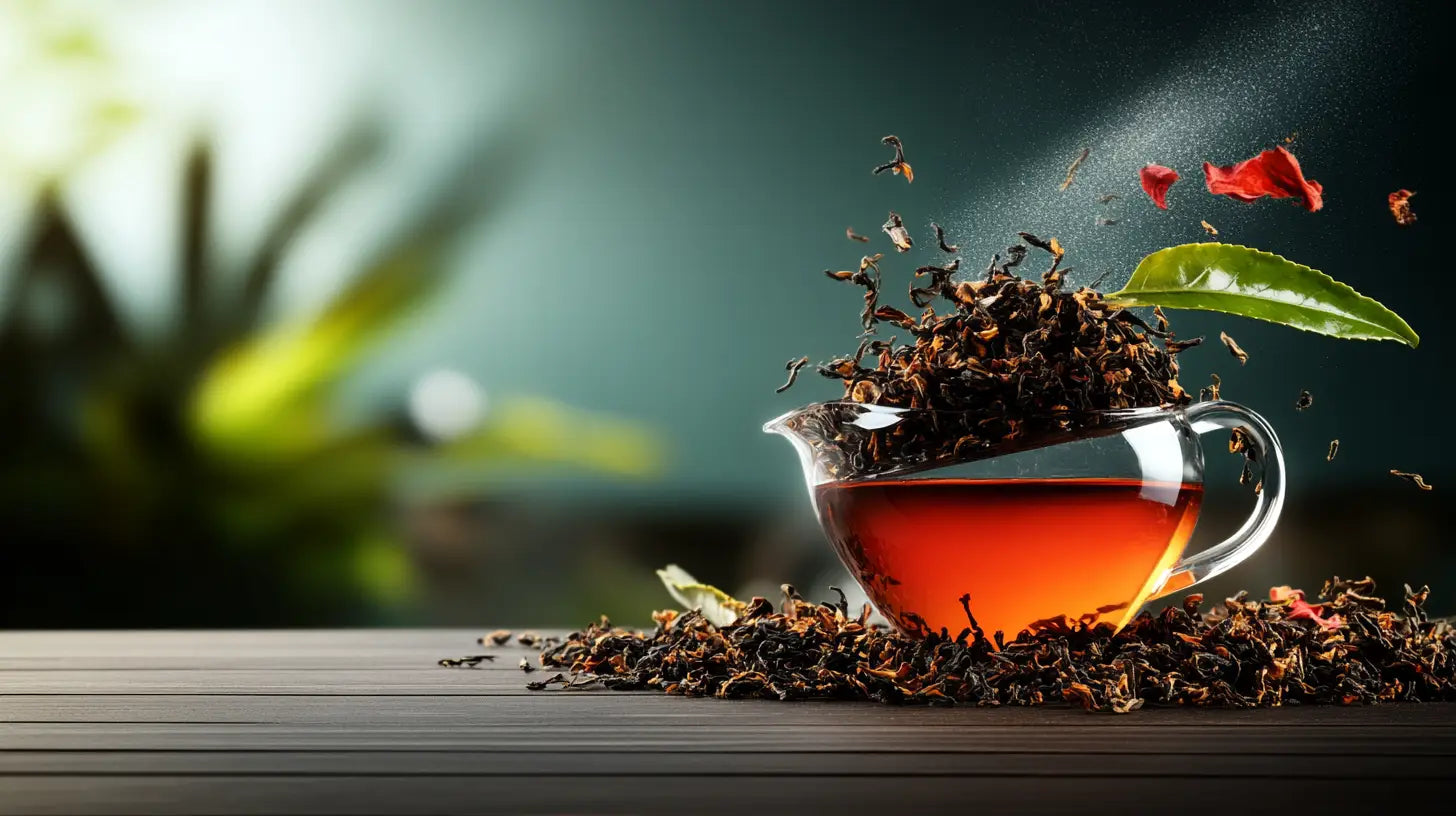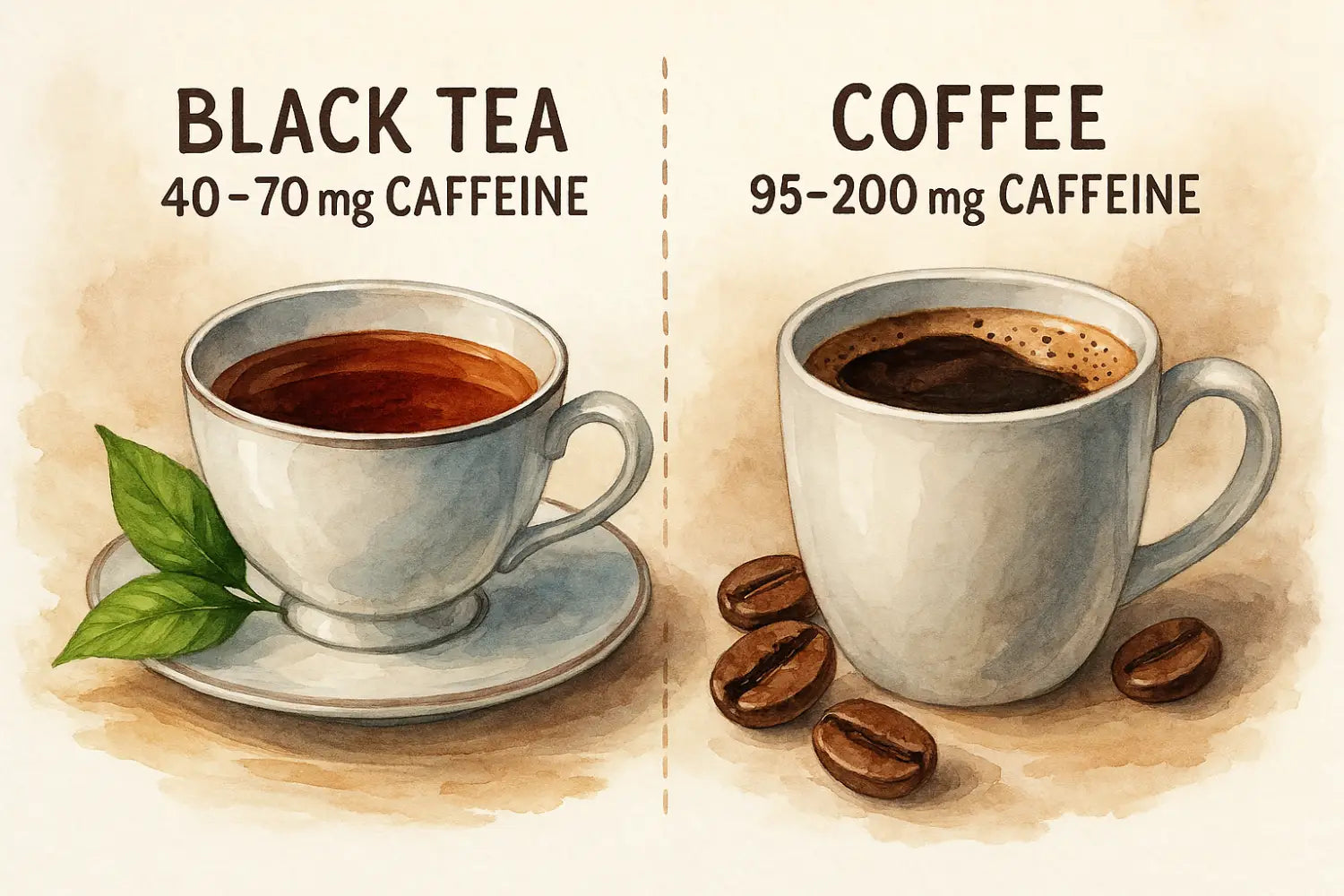The Effects of Black Tea on Sleep and Relaxation

Black tea has a complex relationship with sleep and relaxation, offering both potential benefits and drawbacks depending on consumption patterns and individual sensitivity.
Caffeine Content and Sleep
Black tea does contains caffeine, though much less than coffee:
- Average cup of black tea: 40-70mg caffeine
- Average cup of coffee: 95-200mg caffeine
Relaxation Benefits
Despite its caffeine content, black tea contains compounds that may promote relaxation:
- L-theanine: An amino acid that promotes alpha brain wave activity associated with relaxed alertness
- Theobromine: Provides a milder, longer-lasting stimulation than caffeine
- Ritual aspect: The process of preparing and drinking tea can itself be meditative and calming
Individual Variations
Effects vary significantly between individuals based on:
- Caffeine sensitivity and metabolism (genetic factors play a role)
- Tolerance developed through regular consumption
- Age (older adults may be more sensitive)
- Overall health and sleep quality
Practical Considerations
For those seeking relaxation without sleep disruption if you are sensitive to caffeine:
- Consume black tea earlier in the day, ideally before 2pm
- Consider decaffeinated black tea in the evening
- Herbal alternatives like chamomile or valerian provide relaxation benefits without caffeine
- The ritual of tea drinking can be maintained with caffeine-free options
Black tea can be part of a healthy relaxation routine when timed appropriately, but those with sleep concerns should be mindful of its caffeine content and consider adjusting consumption patterns accordingly.










